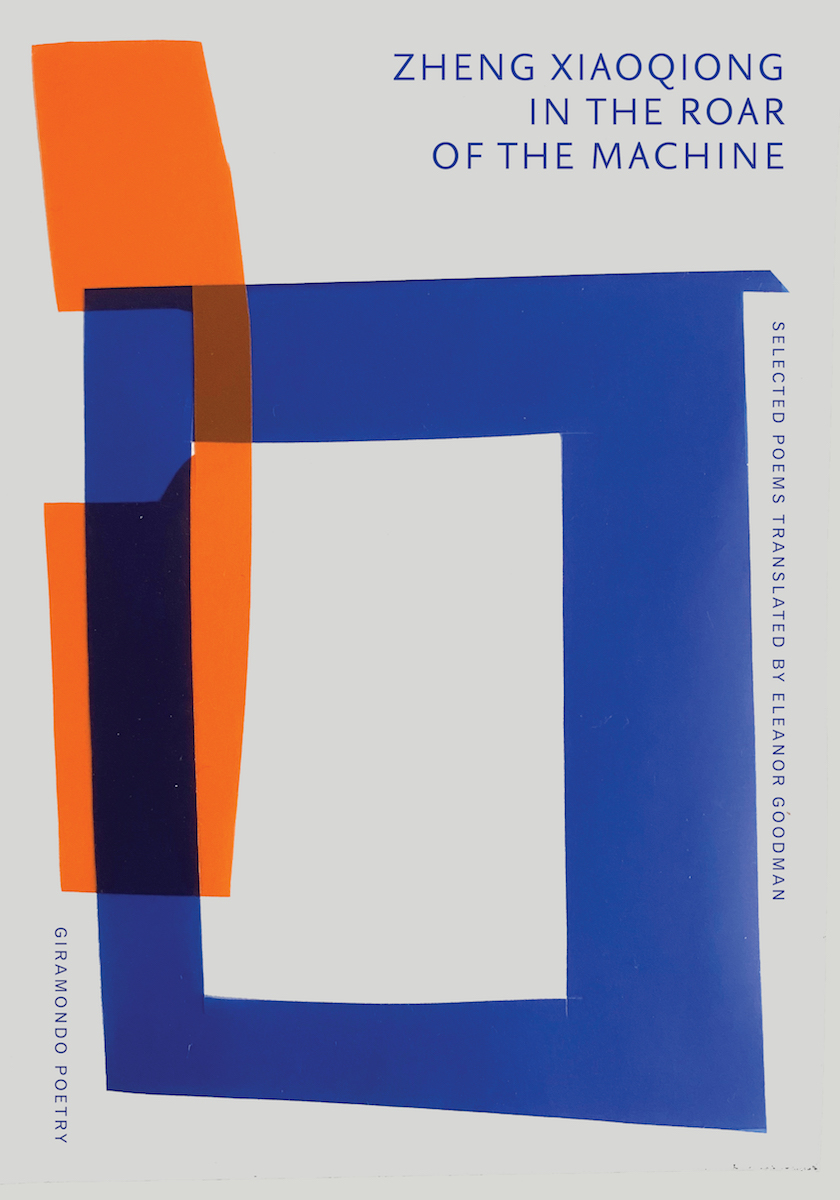 The poet skilfully describes how youth and dreams are lost quickly as the result of hard work, becoming part of the machine: “I see myself resembling this cast iron.” Iron is in her hands, in her mind, in her verses, iron controls her life. Anonymity, monotony, boredom, pain and exploitation are observed with poetic care; politics into poetry.
The poet skilfully describes how youth and dreams are lost quickly as the result of hard work, becoming part of the machine: “I see myself resembling this cast iron.” Iron is in her hands, in her mind, in her verses, iron controls her life. Anonymity, monotony, boredom, pain and exploitation are observed with poetic care; politics into poetry.
Reframing History with ‘Redeclarations’ by Halim Madi
 Halim Madi, a Santa Barbara–based digital poet, highlights this ironic relationship in his new digital art project, Redeclarations, an interactive endeavor that invites viewers to write their own declarations by selecting words and phrases from the original Declaration of Independence. Madi says he opted to use parts of the original document rather than rewrite the whole thing from scratch in an attempt to “reuse the soil from which we grew as a nation to reinvent the nation itself.”
Halim Madi, a Santa Barbara–based digital poet, highlights this ironic relationship in his new digital art project, Redeclarations, an interactive endeavor that invites viewers to write their own declarations by selecting words and phrases from the original Declaration of Independence. Madi says he opted to use parts of the original document rather than rewrite the whole thing from scratch in an attempt to “reuse the soil from which we grew as a nation to reinvent the nation itself.”
A review of Beachcomber by Colleen Keating
 The poet has the ability to immerse herself in nature, her senses capture the beauty that surround us whether at the beach, in a forest or in her own garden. For example, a little rock falls at her feet, she picks it up and she reads its secrets, its past, she hears its voice and she treasures it. Keating has the skill to draw pictures with words bringing to the reader very vivid descriptions.
The poet has the ability to immerse herself in nature, her senses capture the beauty that surround us whether at the beach, in a forest or in her own garden. For example, a little rock falls at her feet, she picks it up and she reads its secrets, its past, she hears its voice and she treasures it. Keating has the skill to draw pictures with words bringing to the reader very vivid descriptions.
An Interview with Sean Singer about Today in the Taxi
 The author of Today in the Taxi talks about his book and its structure, poems, about his 8000 taxi trips, prose poems, literary influences, Kafka, and lots more.
The author of Today in the Taxi talks about his book and its structure, poems, about his 8000 taxi trips, prose poems, literary influences, Kafka, and lots more.
A review of The Vegan Cake Bible By Sara Kidd
 I doubt I’ll ever get my cakes to look as gorgeous as Sara Kidd’s but The Vegan Cake Bible is inspiring, and although I only baked the easiest cakes in the book, I’m keen to build my skills and try some of the harder ones as well. Because the book is so attractive it also makes a lovely gift for any vegan cooks in your life and a great way to create delicious and impressive treats that are ecologically sustainable and cruelty-free.
I doubt I’ll ever get my cakes to look as gorgeous as Sara Kidd’s but The Vegan Cake Bible is inspiring, and although I only baked the easiest cakes in the book, I’m keen to build my skills and try some of the harder ones as well. Because the book is so attractive it also makes a lovely gift for any vegan cooks in your life and a great way to create delicious and impressive treats that are ecologically sustainable and cruelty-free.
A review of Arthurian Things: A Collection of Poems by Melissa Ridley Elmes
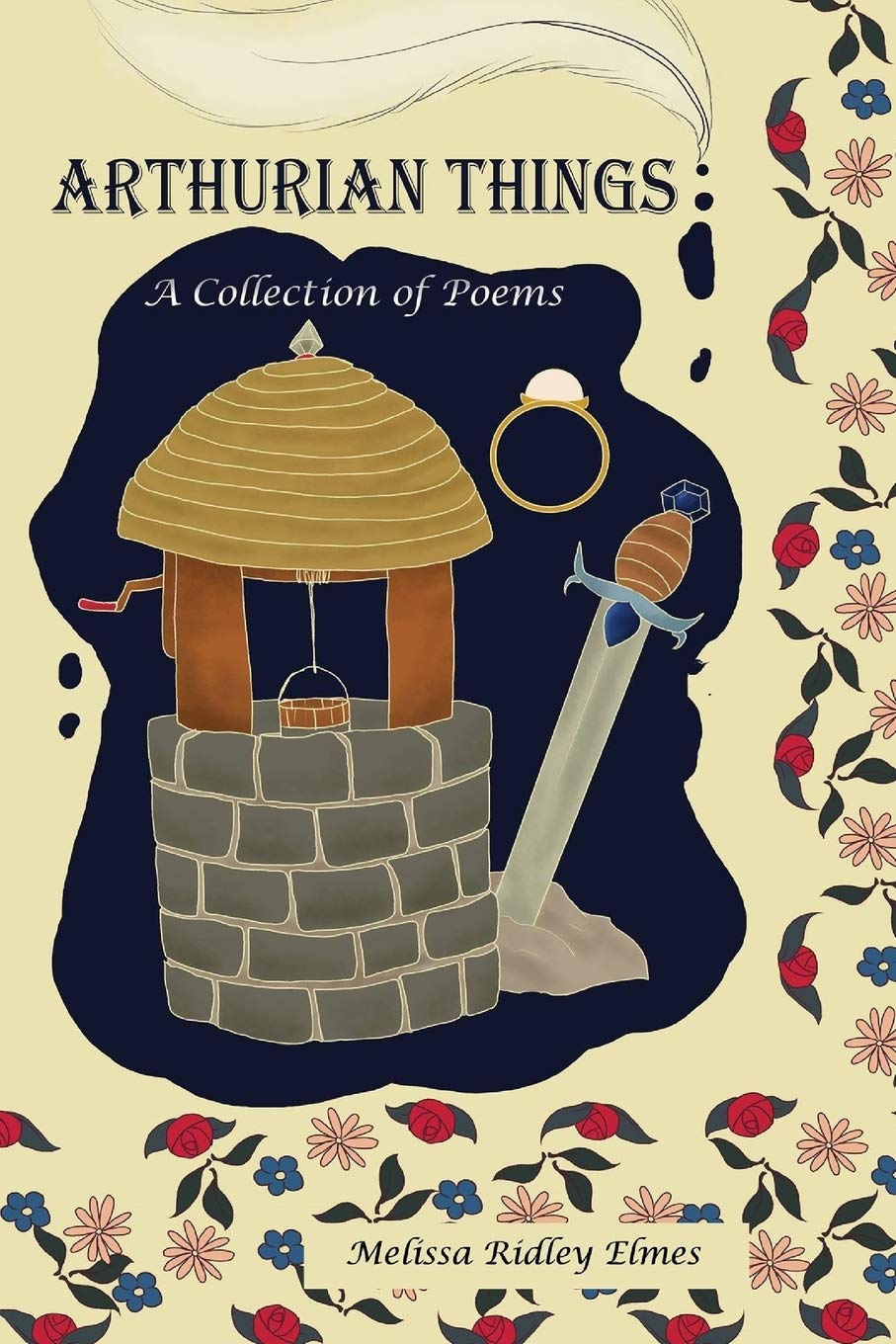 Taking on a legend is never an easy task, and the Arthurian legend is ages old and feels as if it were set in stone. In her collection of poems giving voice to Arthurian Things, Melissa Ridley Elmes has undertaken to add to the canon of Arthuriana poems that imagine voices, tell tales, and create scenes in which the once-and-future King Arthur and his knights are endowed with humor and humanity.
Taking on a legend is never an easy task, and the Arthurian legend is ages old and feels as if it were set in stone. In her collection of poems giving voice to Arthurian Things, Melissa Ridley Elmes has undertaken to add to the canon of Arthuriana poems that imagine voices, tell tales, and create scenes in which the once-and-future King Arthur and his knights are endowed with humor and humanity.
Pay Attention – Taste – Remember: Review of Diane LeBlanc’s Poetry Collection, The Feast Delayed
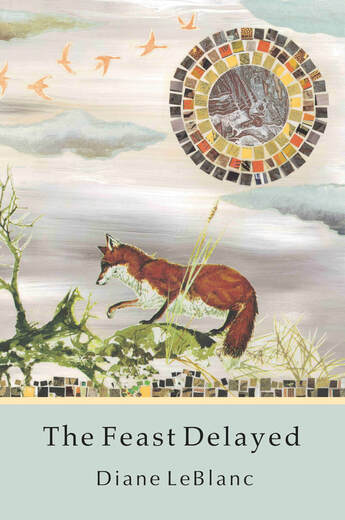 In LeBlanc’s poetry, grief enters through the senses, often the sense of taste. The collection is imbued with flavors. While I read, they lingered on my tongue. In some of the poems, the flavors are bitter and reflect the bitterness of loss and injustice. The prose poem “Expired” takes us through the journey of cleaning out the spice cupboard, of searching out the jars past their expiration dates.
In LeBlanc’s poetry, grief enters through the senses, often the sense of taste. The collection is imbued with flavors. While I read, they lingered on my tongue. In some of the poems, the flavors are bitter and reflect the bitterness of loss and injustice. The prose poem “Expired” takes us through the journey of cleaning out the spice cupboard, of searching out the jars past their expiration dates.
A review of Bad Mothers, Bad Daughters by Maya Sonenberg
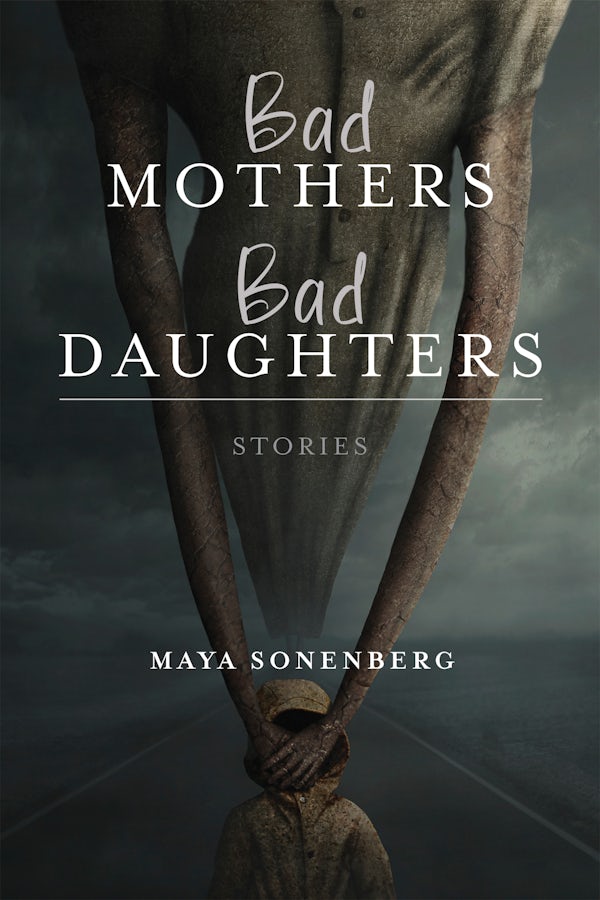 As the reader gets into the stories, the fairytale nature of their shortcomings likewise becomes clear, giving these stories an air of fable – not a moral lesson so much as an insight into human frailties and failings, both mothers and their offspring, merely two sides of the same coin; a parade of characters who come up short.
As the reader gets into the stories, the fairytale nature of their shortcomings likewise becomes clear, giving these stories an air of fable – not a moral lesson so much as an insight into human frailties and failings, both mothers and their offspring, merely two sides of the same coin; a parade of characters who come up short.
An interview with East of Troost’s Ellen Barker
 The author of East of Troost talks about her new novel and its inspiration, the decisions she made about the book and areas of potential pushback, other books dealing with racism that have had a strong impact on her, her new book set in St Louis, and more.
The author of East of Troost talks about her new novel and its inspiration, the decisions she made about the book and areas of potential pushback, other books dealing with racism that have had a strong impact on her, her new book set in St Louis, and more.
A review of Cora’s Kitchen by Kimberly Garrett Brown
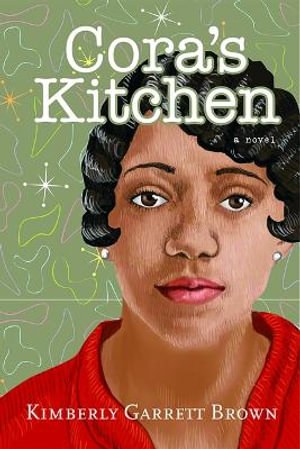 Kimberly Garrett Brown has written an outstanding novel which rings true as a depiction of a budding writer and conveys an important message about overlapping, concurrent forms of oppression.
Kimberly Garrett Brown has written an outstanding novel which rings true as a depiction of a budding writer and conveys an important message about overlapping, concurrent forms of oppression.